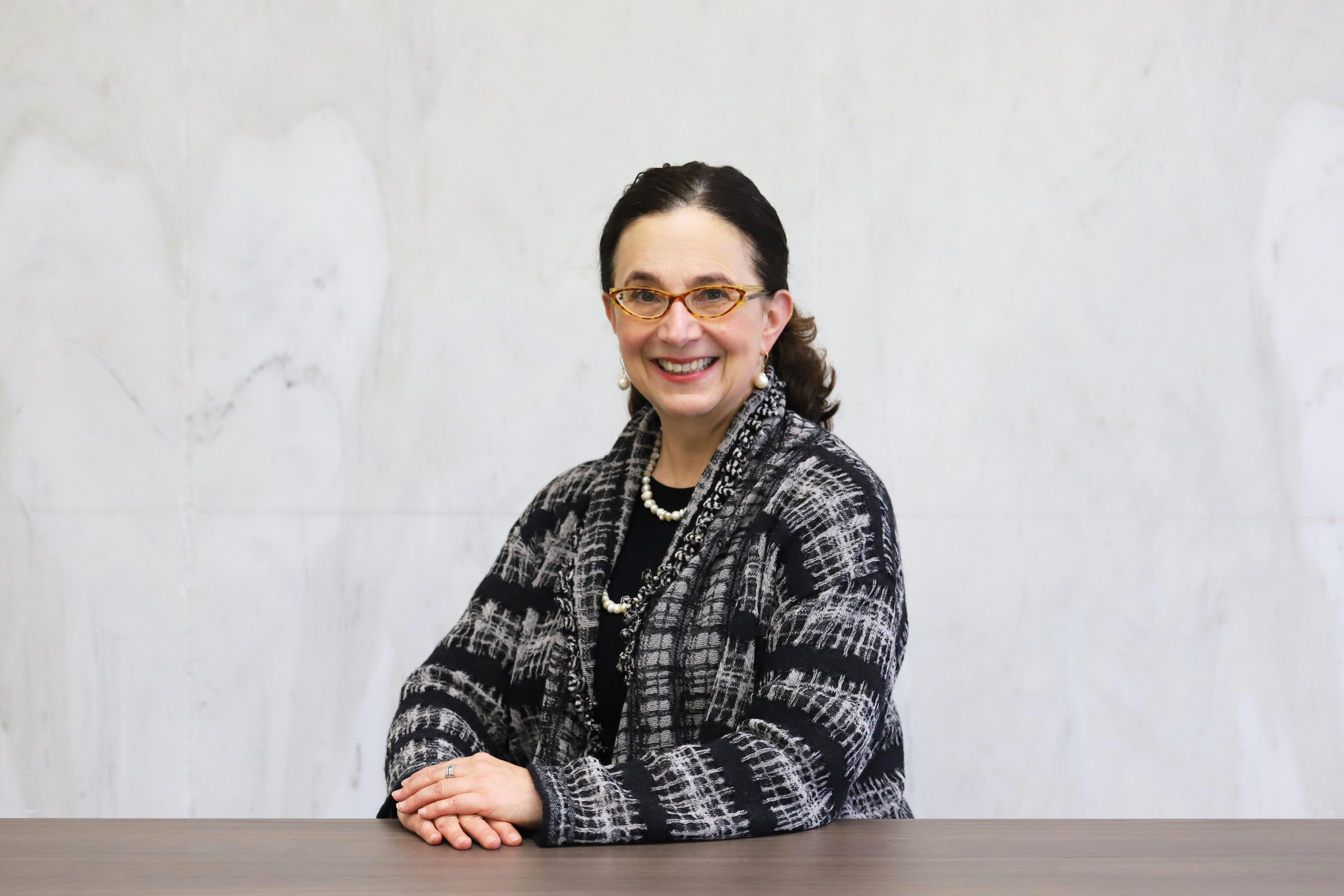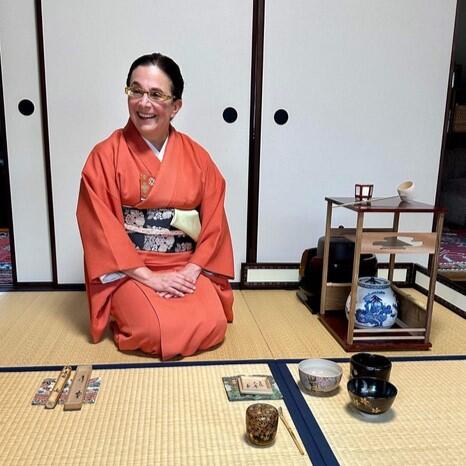ホーム > 大学案内 > 理事・副学長・副理事コラム > 令和6年度 > 第31回:CHRISTINA AHMADJIAN 理事 【英】
第31回:CHRISTINA AHMADJIAN 理事 【英】
(Please click here for the Japanese version.)

I grew up in Worcester, Massachusetts, not far from William Clark's town of Amherst. My father's family was originally from Armenia, who fled as refugees from genocide. My mother's parents came from Sweden, looking for economic opportunities. My paternal grandparents spoke Armenian, ate Armenian food, and celebrated Armenian holidays. My maternal grandparents spoke Swedish, ate Swedish food, and celebrated Swedish holidays. Since I don't speak Armenian or Swedish, I never know what my relatives were talking about. This way, I learned to feel comfortable in a diverse, multi-cultural environment.
My father was a professor at Clark University. He studied lichens and developed techniques to grow them in his lab. He traveled as far as Antarctica and as close as our backyard to study lichens as well as flowers, another of his passions. I was born at the hospital of Uppsala University, where my father was a visiting graduate student. My middle name, Linn, comes from Carl Linnaeus, the great Swedish biologist. When I was a child, I loved visiting my father's lab, peering into his microscope, looking at the lichens and flowers that he had collected, and joining him and his students on nature walks.
When it came time to choose a major in university, I first thought of following my father's footsteps in biology, but realized that the students cared mostly about getting good grades for their medical school applications. Instead, I embraced my love of language and diverse cultures and chose East Asian Studies, with a focus on China. I spent hours practicing the four tones of Mandarin and attending lectures on everything from Chinese poetry to US-Chinese diplomatic relations. I spent a semester of my junior year in Taiwan, where I dreamed about a future connecting the United States and East Asia.
As graduation approached, I realized that I had no idea how to look for a job. I didn't want to go to graduate school immediately, and wanted to work in a company engaged in international trade. But, the US economy was in a recession and there were few opportunities. Just at that time, our department chairman, Professor Ezra Vogel, wrote a book called Japan as Number One: Lessons for America. He also told us that Japan would soon be the biggest economic power in the world and was full of opportunities for new graduates. So, I went to Japan.
In Japan, I lived in a small and cold apartment on the outskirts of Kyoto. At first, I worked as an English teacher. I happened to live next door to a company apartment for Mitsubishi Electric's Kyoto factory. Through connections, I found a position at the factory as an "Office Lady" or OL. My job involved not only checking English correspondence and giving factory tours to foreign guests, but also serving tea, washing ashtrays, and sweeping the floors. I made many friends and learned a lot. However, I also realized that Japan at that time was not a place where a woman could make a career, so I headed back to the US.
During my time in Japan, I became fascinated by how Japan could become the "Number One" economy with such a different business culture and business practices than the US. I also realized that I was happiest in a university environment and decided that I wanted to research and teach about business management. I got my MBA from the Stanford Graduate School of Business, then I entered the PhD program in business at the University of California at Berkeley. After I finished my PhD thesis on Japanese business groups, I moved to an assistant professor position at the business school at Columbia University in New York. I lived there with my family, including my one-year-old daughter.
After teaching at Columbia for a few years, I received an Abe Fellowship to go to Japan to study corporate governance. I was particularly interested in how companies managed their relationships with shareholders, especially their foreign investors, and how they balanced Japanese values around commitment to employees with the American concept of maximizing shareholder value. One thing led to another, and I was offered a position at Hitotsubashi University's newly established Graduate School of International Corporate Strategy. I enjoyed teaching a diverse group of Japanese and international students. I also served as dean of the school for a few years. Later, I moved to the school's Department of Commerce, where I designed and led the Shibusawa Scholar Program, a global leadership program for undergraduates.
A few years ago, I retired from Hitotsubashi University. I am sad to leave teaching, but I still am very involved in academic life. I continue my research, serve as a reviewer and editor for academic journals, and mentor PhD students and junior faculty members. In addition to my academic activities, I serve as an outside director on corporate boards, including Asahi Group Holdings (parent company of Asahi Beer), and NEC. I believe that it is important to cross between universities and corporations. They are such different worlds, with different cultures and objectives, but with so much knowledge to share.
I was happy to join Hokkaido University as an executive director from April 2024. Two key words best describe Hokkaido University: international and sustainable. Hokkaido University has a welcoming attitude to international students and faculty and is a magnet for visitors from around the world. It combines a high academic level with a beautiful campus and location in one of the best (and most delicious) places in the world. Hokkaido University is blessed with a beautiful campus and precious land in Sapporo and Hokkaido. It is a haven of biodiversity and beauty. Our campus can teach us so much about how to live sustainably with nature. Our international students, faculty members, partners, and friends can teach us so much about how to create and spread knowledge for a more sustainable world.
Although my work at Hokkaido University combined with my academic research activities and corporate board work keeps me busy, I still make time for hobbies. I love to collect and wear Japanese kimonos. Their beauty and craftsmanship are like nothing else in the world, and I share my love for them with friends around the world. I love Japanese tea ceremony despite the pain of sitting seiza on tatami! I try to spend as much of it as possible in my 90-year-old house in Shiga Prefecture, right outside of Kyoto, enjoying both the culture of Kyoto and the even more ancient culture of Shiga.

Every time I land at Shin-Chitose Airport, I smile. When I walk through the university gates, I feel like I have returned home. I am so happy to have the opportunity to contribute to Hokkaido University's mission, and to help it be both a great global university and a unique product of Hokkaido.
























